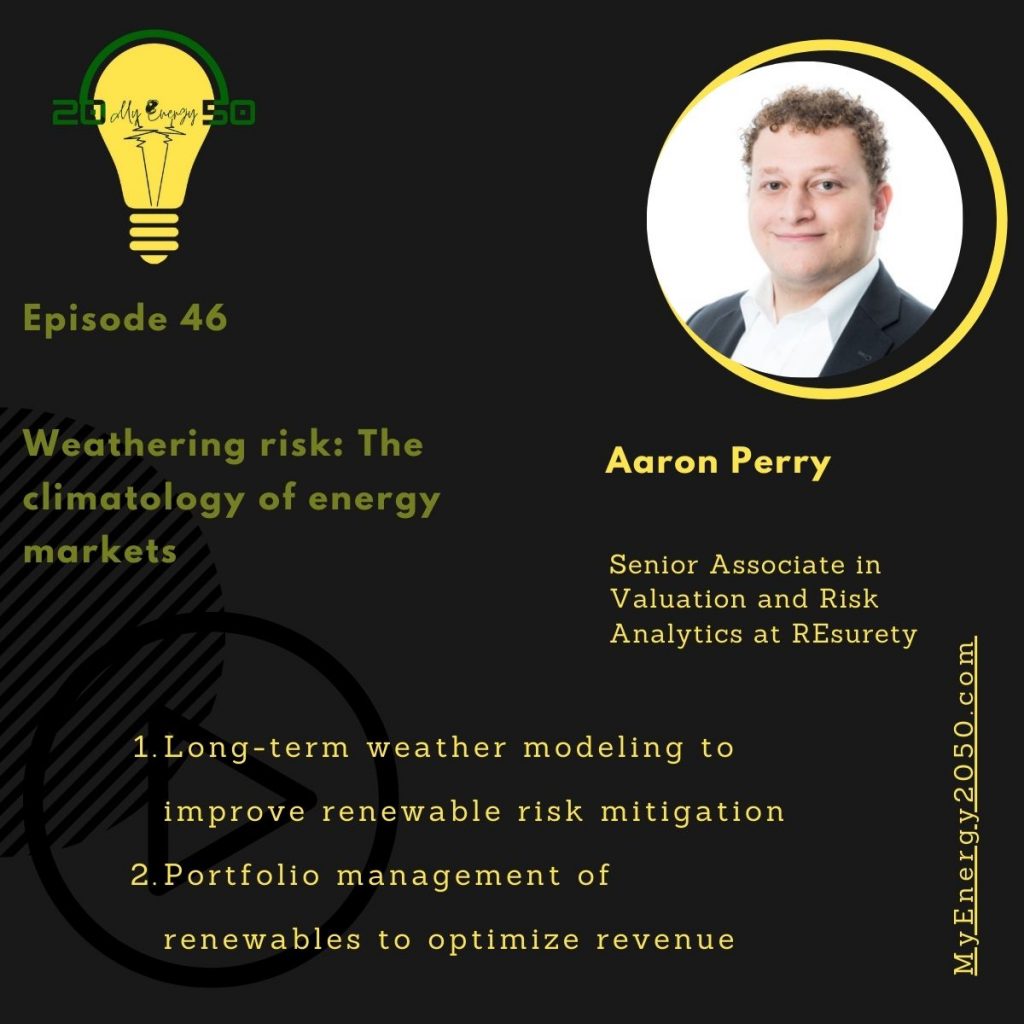This week we speak with Aaron Perry, a senior associate in Valuation and Risk Analytics at Resurety. We discuss the role that long-term and short-term weather forecasting plays in reducing financial risks. Aaron is a climatologist and takes a long-term view on the impact weather has on renewable energy, like wind and solar.
Aaron explains the market impact of weather in an age of weather-dependent technologies impacts the price in power markets. There is a strong need to predict the output of renewable facilities. This means the owners can ride the peaks and troughs of power markets and weather conditions. In short, there is a great need to do portfolio management of assets to ensure these are profitable.
To be honest, it is a bit hard for me to summarize our discussion in some clear points. As you’ll hear, as the episode progresses, we get more and more exact in the language we use to describe the impact of weather on the power markets. There is a reason for this. The complexities behind financing renewable energy is not down to just money to build, but also to ensure long-term operations are profitable. Combine the finances with the complexities of the power market, and the complexities of weather prediction, and you get into the complexities of what we discuss today. It is just very complex. But it boils down to making sure renewables are producing at maximum output, and are also able to sell this power into the market.

Towards the end of the interview, we get into the role of hedging. Hedging, while it sounds like a risky term, as Aaron explains, actually just shifts risk exposure from those that don’t want it to those that do want it. I think you’ll find this informative to understand the complexities of renewable financing. In my interpretation, one of the biggest barriers to renewables, besides technological, is financial risks. This is why I find today’s episode so important. If we find ways to reduce financial risks, or even lower the cost of operations for renewables, more renewables can be deployed.
In short, the ability to ensure renewables are not-loss making means more fossil-free technologies can be deployed. Taking into account the impact of weather on the price of electricity means the energy transition can progress.
Dr. Michael LaBelle is an associate professor at Central European University in the Department of Environmental Sciences. He produces the My Energy 2050 podcast to change how we communicate and improve the energy transition.

One Response
Comments are closed.